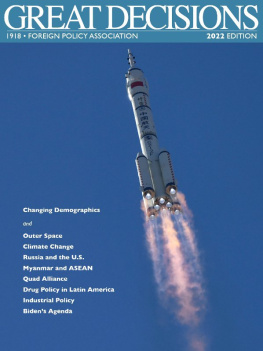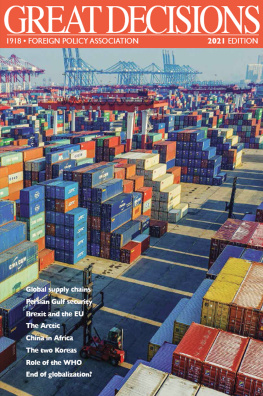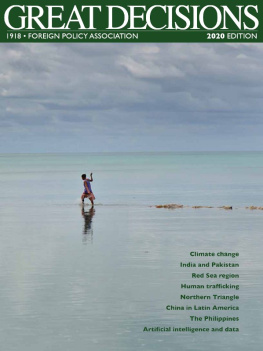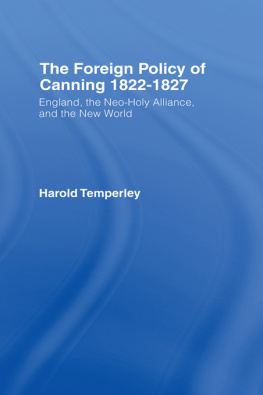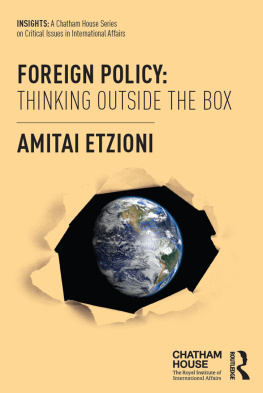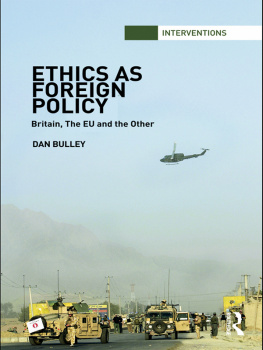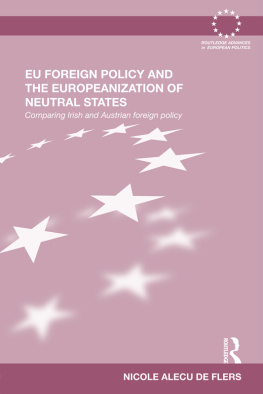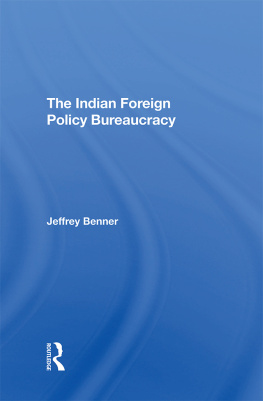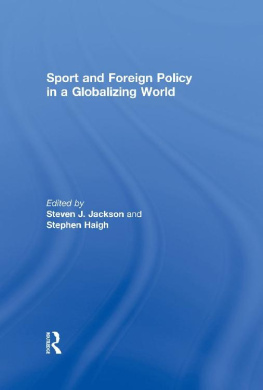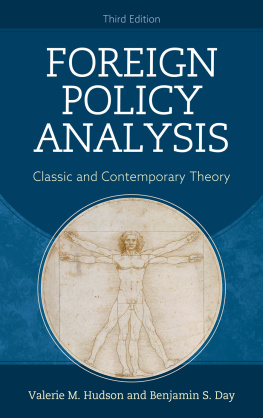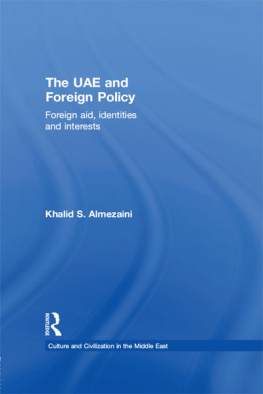Foreign Policy Association - Great Decisions 2022
Here you can read online Foreign Policy Association - Great Decisions 2022 full text of the book (entire story) in english for free. Download pdf and epub, get meaning, cover and reviews about this ebook. year: 2022, publisher: Foreign Policy Association, genre: Politics. Description of the work, (preface) as well as reviews are available. Best literature library LitArk.com created for fans of good reading and offers a wide selection of genres:
Romance novel
Science fiction
Adventure
Detective
Science
History
Home and family
Prose
Art
Politics
Computer
Non-fiction
Religion
Business
Children
Humor
Choose a favorite category and find really read worthwhile books. Enjoy immersion in the world of imagination, feel the emotions of the characters or learn something new for yourself, make an fascinating discovery.
- Book:Great Decisions 2022
- Author:
- Publisher:Foreign Policy Association
- Genre:
- Year:2022
- Rating:3 / 5
- Favourites:Add to favourites
- Your mark:
- 60
- 1
- 2
- 3
- 4
- 5
Great Decisions 2022: summary, description and annotation
We offer to read an annotation, description, summary or preface (depends on what the author of the book "Great Decisions 2022" wrote himself). If you haven't found the necessary information about the book — write in the comments, we will try to find it.
A briefing book published annually by the Foreign Policy Association with eight background articles on various foreign policy topics. This book is the basis for a nationwide discussion program.
Great Decisions 2022 — read online for free the complete book (whole text) full work
Below is the text of the book, divided by pages. System saving the place of the last page read, allows you to conveniently read the book "Great Decisions 2022" online for free, without having to search again every time where you left off. Put a bookmark, and you can go to the page where you finished reading at any time.
Font size:
Interval:
Bookmark:

Editorial Advisory Committee
CHAIRMAN
David B.H. Denoon
Professor of Politics and Economics
New York University
Barbara Crossette
Specialist on the UN
and South-Southeast Asia
Michael Doyle
Harold Brown Professor
of International Affairs,
Law and Political Science;
University Professor
Columbia University
Christine E. Lucas
Chief of Operations
Leadership Florida, Tallahassee
Lawrence G. Potter
Adjunct Associate Professor of International and Public Affairs,
Columbia University
Thomas G. Weiss
Presidential Professor
of Political Science
The CUNY Graduate Center
Karen M. Rohan
FPA Editor in Chief,
Ex officio
Foreign Policy Association
Henry A. Fernandez
Chairman of the Board of Directors
Noel V. Lateef
President and CEO
EDITOR IN CHIEF
Karen M. Rohan
ASSISTANT EDITOR
Graham Nau
PHOTO EDITOR
Cynthia Carris Alonso
MAPS AND CHARTS
Robert Cronan
Lucidity Information Design, LLC
About the cover
A Long March-2F carrier rocket, carrying the Shenzhou-12 spacecraft and a crew of three astronauts, lifts off from the Jiuquan Satellite Launch Centre in the Gobi desert in northwest China on June 17, 2021, the first crewed mission to Chinas new space station. (GREG BAKER/AFP/GETTY) )
GREAT DECISIONS IS A TRADEMARK OF THE FOREIGN POLICY ASSOCIATION.
COPYRIGHT 2022 BY
FOREIGN POLICY
ASSOCIATION, INC.,
551 FIFTH AVENUE,
NEW YORK, NEW YORK 10176.
All rights reserved.
No part of this book may be reproduced in any form, or by any means, without permission in writing from the publisher.
Researched as of November 17, 2021.
The authors are responsible for factual accuracy and for the views expressed.
FPA itself takes no position on issues of U.S. foreign policy.
Dont forget to vote!
Download a copy of the ballot questions from the Resources page at www.fpa.org/great_decisions
FPA: Taking Stock and Looking Ahead
I n 1918, President Woodrow Wilson imagined a world in which conquest and aggrandizement would be relegated to the dustbin of history. This new world order would be ushered in by a general association of nations that would offer mutual guarantees of political independence and territorial integrity to great and small states alike.
That same year, concerned citizens from all walks of life came together in New York City with a clear mission: to win public support for Wilsons vision for this new world order. Having witnessed the horrors of the First World War, they believed that the League of Nations could become the bulwark for world peace.
The citizen effort that would come to be known as the Foreign Policy Association persevered. And, in 1944, in a major address to the Foreign Policy Association at The Waldorf Astoria in New York City, President Franklin D. Roosevelt would set out his vision for the United Nations:
Now, there are some who hope to see a structure of peace completely set up immediately, with all the apartments assigned to everybodys satisfaction, with the telephones in, and the plumbing complete the heating system and the electric iceboxes all functioning perfectly, all furnished with linen and silver and with the rent prepaid. The United Nations has not yet produced such a comfortable dwelling place. But we have achieved a very practical expression of a common purpose on the part of four great nations that are now united to wage this war, that they embark together after the war on a greater and more difficult enterprise, an enterprise of waging peace. We will embark on it with all the peace-loving nations of the worldlarge and small.
The challenge of waging peace has been daunting. The structure of peace President Roosevelt envisioned remains unfinished. While the United Nations continues to champion conflict prevention, the list of global challenges has grown. From climate change to pandemics, the United Nations and its specialized agencies are immersed in the issues of the day.
The United Nations Climate Summit, the twenty-sixth Conference of the Parties (COP26) held in Glasgow, Scotland in November 2021 was not just another UN mega-conference. Under the presidency of the United Kingdom in partnership with Italy, COP26 has succeeded in obtaining net-zero commitments from governments covering four-fifths of global emissions. In addition to ambitious climate policies by governments, the private sector, including financial services, has embarked on aggressive climate actions. The prospects for public/private collaborations coming out of COP26 are encouraging.
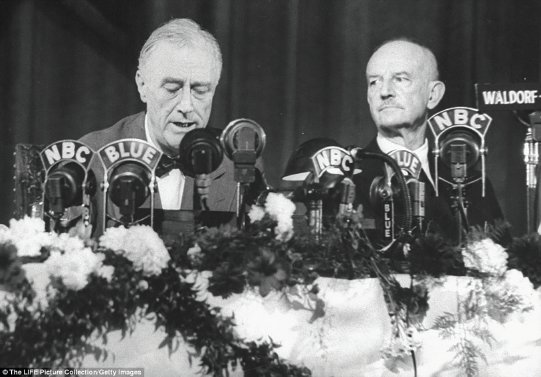
Photograph of President Franklin D. Roosevelt and FPA President Major General Frank R. McCoy during President Roosevelts 1944 address to the Foreign Policy Association at The Waldorf Astoria in New York City. (Photo by George Skadding/The LIFE Picture Collection/Getty Images)
Less encouraging is the global governance on immunization against Covid-19. Robert D. Hormats has aptly characterized the global Covid-19 pandemic as World War III:
It was not what strategists had imagined decades ago. No nuclear weapons. No missiles or destructive cyber technology. But massively lethal and devastating to economies and the lives of hundreds of millions of people, nonetheless. And countries are not fighting one another but a small, unseen and unpredictable virus that poses a threat to virtually all nations regardless of the nature of their governments or political philosophies.
The rapid development of vaccines for Covid-19 is a remarkable accomplishment. A full-court press should be mounted to immunize the planets 7.8 billion people. We have the compelling precedent of the eradication of smallpox when global cooperation prevails. Morality and self-interest are conflated in such initiatives. Likewise, overcoming the Covid-19 pandemic and meeting the pressing challenges of climate change are in the interest of every nation.
Global cooperation will become more compelling over time as new technologies and transnational issues dominate national agendas. Such cooperation gives credence to what the anthropologist Robert Boyd describes as cumulative cultural evolution. Boyd argues: We humans would not be an exceptional species if we did not adapt culturally. Among our most important cultural traits is the ability to cooperate across diverse backgrounds. From what we know of human fallibility, there has never been a greater need for intensive and continuous cooperation than in the nuclear age. An inadvertent action could set off a train of events that could destroy civilization as we know it. A culture of global cooperation for peace and conflict prevention is our best hope.
Cumulative cultural evolution teaches us that challenging situations are resolved by leadership. And that our common humanity and the triumph of the human spirit over adversity are what bind us on this small, fragile planet.
Next pageFont size:
Interval:
Bookmark:
Similar books «Great Decisions 2022»
Look at similar books to Great Decisions 2022. We have selected literature similar in name and meaning in the hope of providing readers with more options to find new, interesting, not yet read works.
Discussion, reviews of the book Great Decisions 2022 and just readers' own opinions. Leave your comments, write what you think about the work, its meaning or the main characters. Specify what exactly you liked and what you didn't like, and why you think so.

